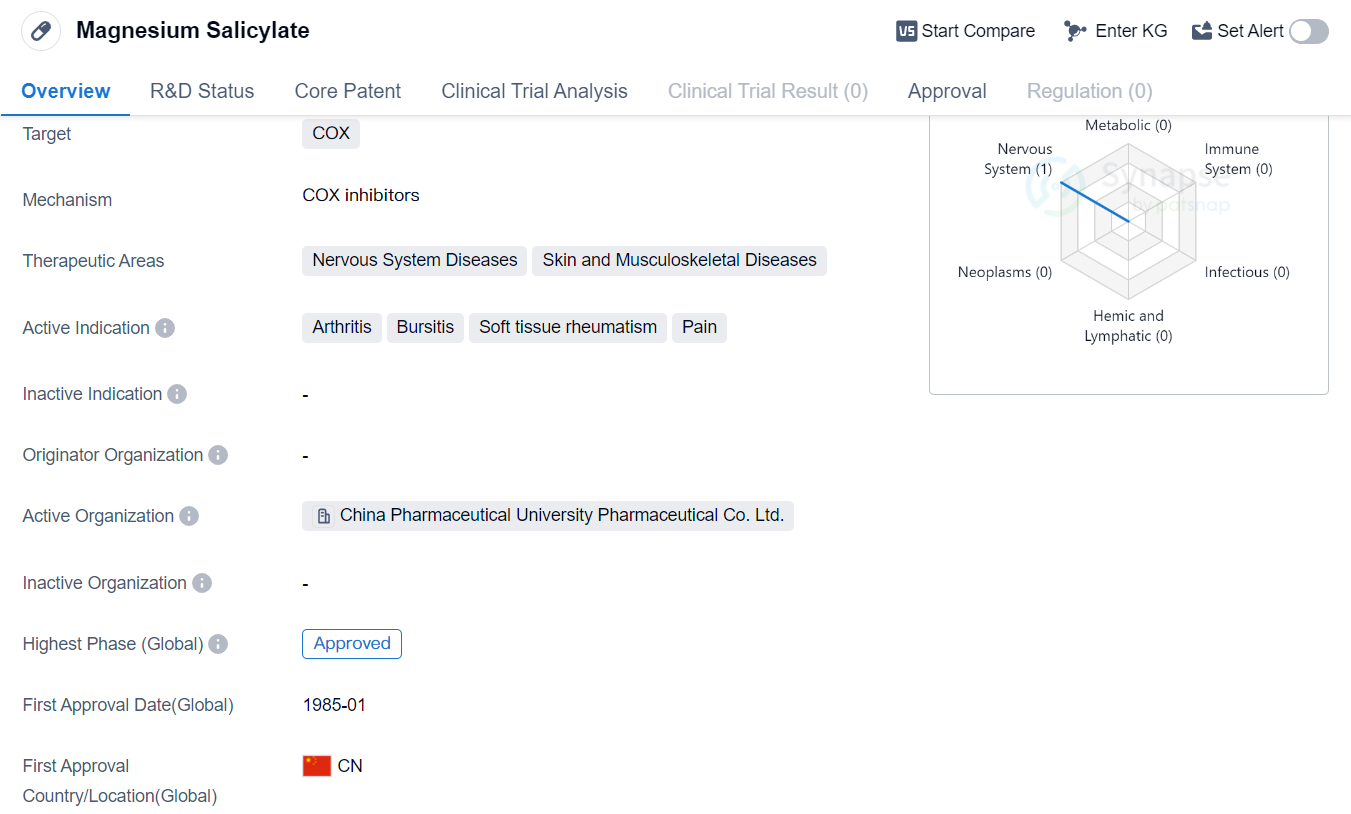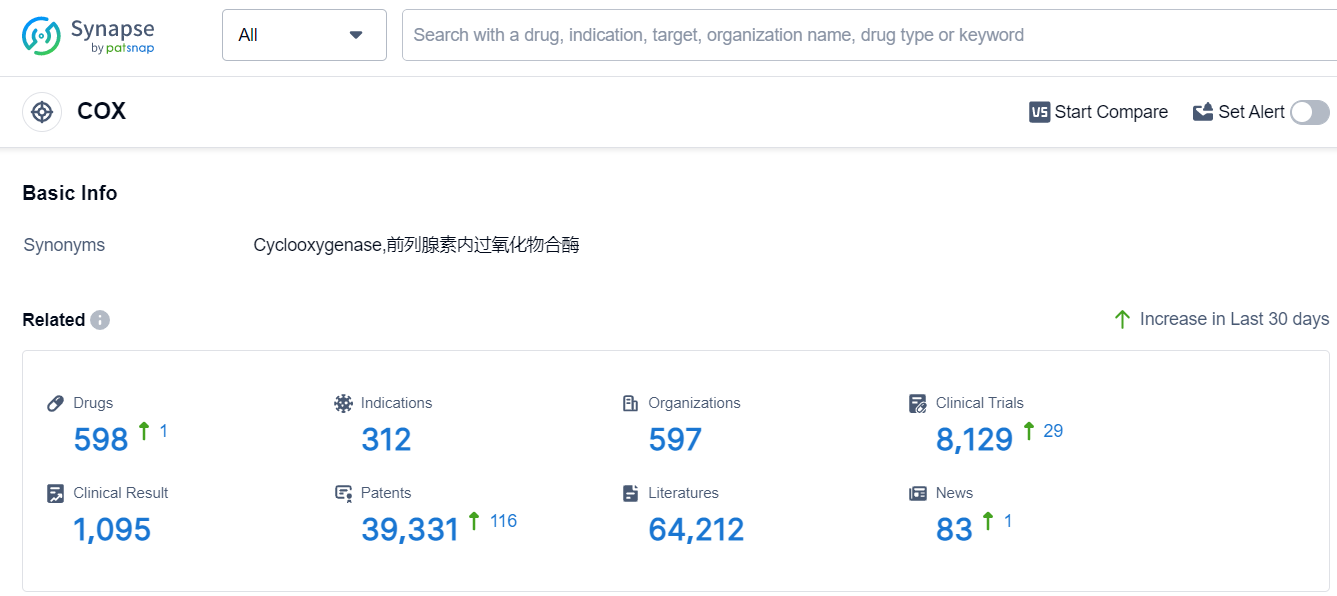An In-depth Analysis of Magnesium Salicylate's R&D Progress and Mechanism of Action on Drug Target
Magnesium Salicylate's R&D Progress
Magnesium Salicylate is a small molecule drug that primarily targets COX, an enzyme involved in the production of inflammatory substances in the body. This drug is used in the treatment of various conditions related to the nervous system, skin, and musculoskeletal system. The active indications for Magnesium Salicylate include arthritis, bursitis, soft tissue rheumatism, and pain.
Magnesium Salicylate has been approved for use in the global markets. The drug received its first approval in China in January 1985, making it available for patients in that country.
The therapeutic areas targeted by Magnesium Salicylate indicate its potential effectiveness in treating diseases and conditions related to the nervous system, skin, and musculoskeletal system. Nervous system diseases encompass a wide range of conditions affecting the brain, spinal cord, and nerves, while skin diseases refer to disorders affecting the skin's structure and function. Musculoskeletal diseases involve the bones, muscles, joints, and connective tissues.
The active indications for Magnesium Salicylate highlight its potential benefits in managing arthritis, bursitis, soft tissue rheumatism, and pain. Arthritis is a common condition characterized by joint inflammation, while bursitis refers to the inflammation of the fluid-filled sacs that cushion the joints. Soft tissue rheumatism encompasses various conditions affecting the muscles, tendons, and ligaments. Pain, a symptom experienced by many individuals, can be alleviated with the use of Magnesium Salicylate.
👇Please click on the image below to directly access the latest data (R&D Status | Core Patent | Clinical Trial | Approval status in Global countries) of this drug.
Mechanism of Action for Magnesium Salicylate: COX inhibitor
COX inhibitors are a type of medication that work by inhibiting the activity of cyclooxygenase (COX) enzymes. COX enzymes are responsible for producing prostaglandins, which are chemical messengers involved in inflammation, pain, and fever. By blocking the action of COX enzymes, COX inhibitors help reduce inflammation and relieve pain. They are commonly used to treat conditions such as arthritis, menstrual cramps, and acute injuries. COX inhibitors can be classified into two types: COX-1 inhibitors and COX-2 inhibitors. COX-1 inhibitors block both COX-1 and COX-2 enzymes and can have side effects on the stomach lining, increasing the risk of stomach ulcers and bleeding. On the other hand, COX-2 inhibitors selectively target the COX-2 enzyme and have a lower risk of gastrointestinal side effects. It is important to note that the long-term use of COX inhibitors should be done under medical supervision due to potential side effects on the cardiovascular system, kidneys, and liver.
Drug Target R&D Trends for Magnesium Salicylate
The analysis of the current competitive landscape and future development of target COX reveals that GSK Plc, Viatris Inc., and Pfizer Inc. are the leading companies in terms of growth and R&D progress. The most common indications for drugs targeting COX are Pain, Common Cold, Rheumatoid Arthritis, and Osteoarthritis. Small molecule drugs dominate the market, indicating their effectiveness and widespread use. China, the United States, and Japan are the countries with the fastest development under the target COX, with China leading in terms of the number of approved drugs. Overall, the target COX presents a competitive landscape with significant opportunities for further research and development in the pharmaceutical industry.
According to Patsnap Synapse, as of 16 Sep 2023, there are a total of 598 COX drugs worldwide, from 597 organizations, covering 312 indications, and conducting 8129 clinical trials.
Please click on the picture link below for free registration or log in directly if you have a freemium account, you can browse the latest research progress on drugs, indications, organizations, clinical trials, clinical results, and drug patents related to this target
Conclusion
Overall, Magnesium Salicylate is a small molecule drug that targets COX and is approved for use in treating nervous system diseases, skin diseases, and musculoskeletal diseases. Its active indications include arthritis, bursitis, soft tissue rheumatism, and pain. With its approval in the global markets, Magnesium Salicylate has the potential to provide relief for patients suffering from these conditions.






